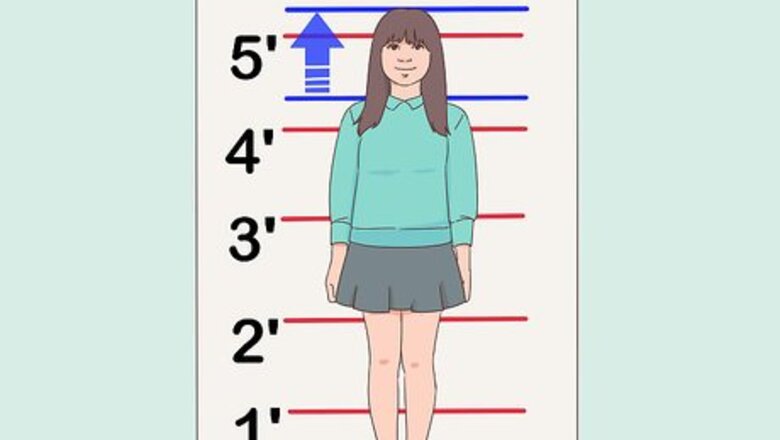
views
Looking for Signs on Your Body
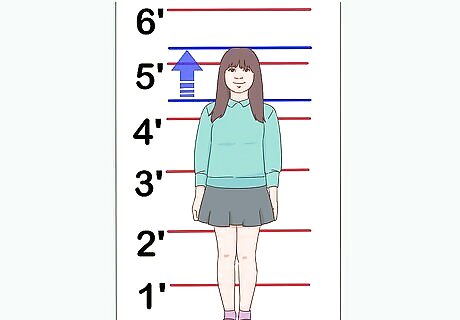
Check for general growth. Have you noticed that you need new clothes, shoes, or other items all of a sudden? When you hit puberty you may gain weight and grow taller. Noticing this type of general growth can cue you to look for more specific signs of puberty.
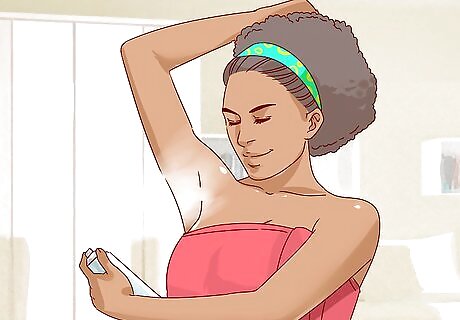
Recognize body odor. When you go through puberty, your hormones are in overdrive and your sweat glands start becoming more active. Your sweat will start to mix with bacteria, which will cause body odor. Luckily, there are many things you can do to get rid of this unpleasant odor, including: Take a shower or bath every day. Scrub your body from top to bottom using warm water and a mild soap. Use deodorant or antiperspirant on your underarms every day. Deodorant covers up the unpleasant odor and antiperspirant keeps you from sweating a lot. Wear 100% cotton underwear to ensure fresh breathability.
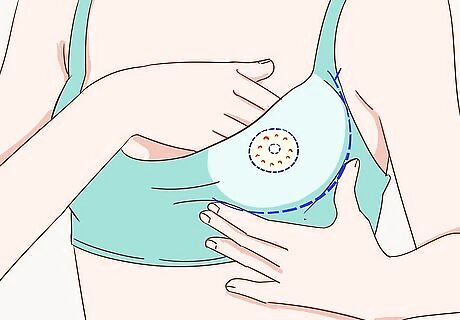
Feel your chest for breast buds. Look at the area around your nipples on your chest. Gently press on this spot with your fingers for small, firm, and tender lumps. If you feel a nickel-sized bump on each side, you're probably starting to develop breasts. Be careful when doing this as it can hurt sometimes. Most people start developing breast buds when they're 8, 9 or 10. Don't worry about checking your breasts by hand. It's completely normal to explore your body as you develop. One bud might develop more quickly than the other as your chest gets bigger.
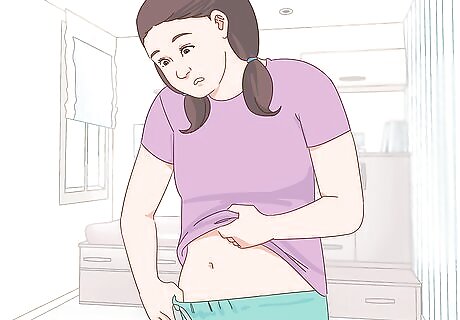
Check in your underwear for pubic hair. Look at or feel your pubic area, which is between your legs, for little hairs. They may be soft and straight or thick, coarse, and curly. Having pubic hair is a sign you've started puberty. It's completely normal to examine your vagina or labia for pubic hair.
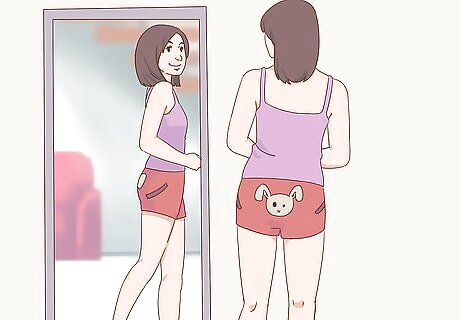
Stand in front of the mirror to check your shape. In addition to feeling breast buds and seeing pubic hair, you may notice your shape changing. Think about if you've noticed your clothes fitting differently, for example. Looking for regular changes to your shape in the mirror can also tell you if you're starting puberty. Other parts of your body that may get rounder or slightly bigger include: Hips Thighs Arms Legs Hands Feet Breasts Butt
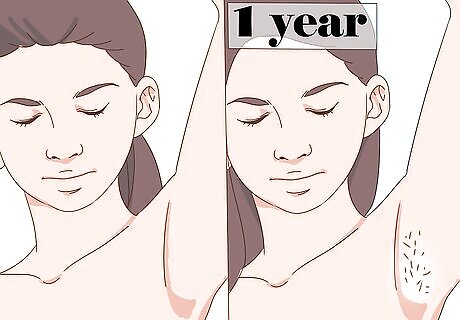
Wait a year or two for armpit and leg hair. Gently touch under your arms and look at yourself in a mirror to see if you have any hair in your armpits. Also take a close look at your legs. Your leg hair may be getting darker, thicker, and more noticeable. Check for hair in these areas about a year or two after you see pubic hair. Armpit and leg hair grow in a pattern similar to pubic hair: it may be sparse and soft at first and then become thicker, darker, and more coarse.
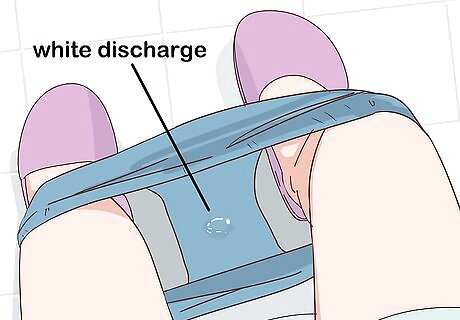
Check for vaginal discharge. Look in your underwear for signs of vaginal discharge a year or two after you get breast buds (keep in mind that your discharge may come before, during or after your breast buds develop). You may even feel it in your underwear or between your legs. The discharge might be thin and watery, thick like mucus, or white or off white in color. Having discharge is completely common and normal and a good way to tell you're going through puberty. Let a doctor or trusted person know if your vaginal discharge is not white or off white and smells unusual. This may be a sign of an infection.
Check for genital development. During puberty, your vaginal labia, or "lips", grow slightly larger and may also become darker in color.. During puberty, your inner labia, or labia minora, will become more prominent. You can't see it, but inside your body, your vagina will grow longer and your uterus will become bigger.
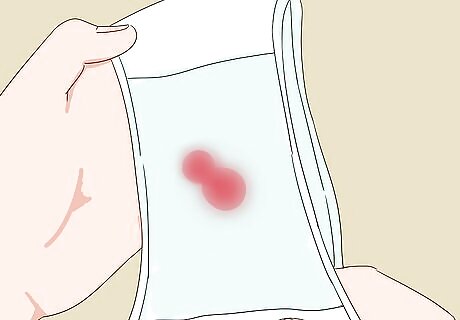
Get your first period. Expect your period to start within six months to a year of noticing vaginal discharge. Check for any signs of blood in your underwear or in your vaginal discharge. This can mean that you're going through puberty and about to have your first period. For many people, this is often the most exciting and scary part of puberty. It's common for your period to be irregular after you first menstruate. You may experience bloating around the time you get your period. When this happens, you'll feel that your belly is more full or swollen than normal. You may have some cramps, backaches, or headaches before and during your period.
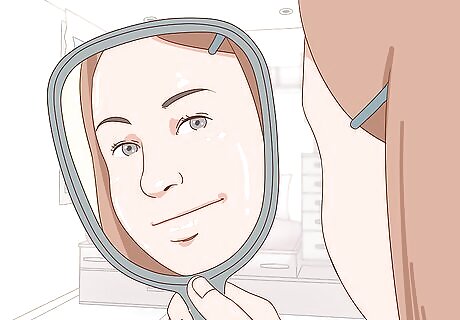
Inspect your skin for changes. See if you notice more oil, pimples, or irritation on your skin. As your body changes, so does your skin. Breakouts and oily skin on your face, neck, chest and/or back may also indicate that you're going through puberty. Wash your face with a mild soap or cleanser to get rid of excess oil and keep breakouts at bay. Ask your doctor for advice or a prescription medication if your breakouts are severe. It's completely common to have acne during puberty, but because it's often an emotional time, breakouts may make problems or feelings worse.
Feeling Different and New Emotions

Keep a journal of your emotions. Write your feelings down every day or whenever you need a little consolation. Hormones gush through your body during puberty and these can change make your emotions. Read through your journal once a week to see if you notice a lot of ups and downs. Changing emotions can help you tell if you are going through puberty. Some emotions you might notice are: Feeling uncomfortable with your body's changes. Being sensitive to things people say or do. Having intense emotions such as being very jealous of someone when you didn't care about them before. Having less confidence. Feeling anxious or even depressed. Being more irritable or angry for no reason.

Pay attention to how you think. When you do homework or deal with different situations, notice if you think about or handle them in different ways. These new thought patterns can be a sign you're starting puberty. Watch for these different types of changes to how you think: Understanding harder subjects or responsibilities, such what happens when you don't do your chores or homework. Making more of your own choices, such as knowing when you should stand up for what is right and wrong. Knowing what you like and don't like.
See if you are becoming more distant from your parents. You may have trouble communicating with your parents. Also, you may feel more withdrawn or embarrassed by your parents. Almost everyone experiences similar problems with their parents.
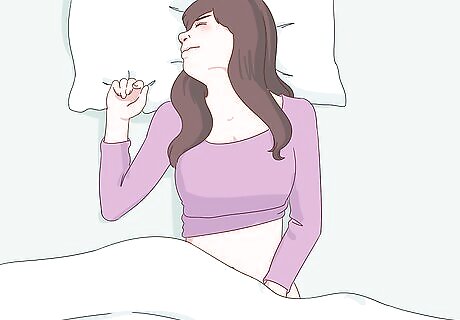
Experience curiosity about your body. Wanting to look at and touch your body is a normal part of growing up and going through puberty. You may even be more curious about sex and sexuality as you develop. Explore your body and enjoy masturbation if you want. Both are very normal, common, and nothing about which to be ashamed. They're also a good way to tell you're going through puberty. Masturbation and touching your own body are completely normal. Neither will make hair grow on your hands, cause you to go blind or develop emotional problems. It won't make you unable to have kids, either. Ask a trusted person about your interest in your body and masturbation. Don't be embarrassed, they may have gone through or are experiencing the same feelings!
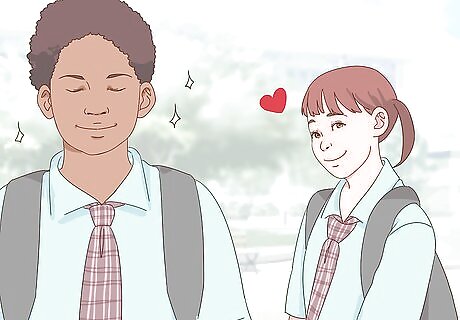
Welcome feelings of attraction to others. Romantic or sexual feelings are another normal part of being an adult. Notice if you start to have feelings for other people when you notice other signs of puberty. This can help you further tell if you're going through puberty. Talk to friends, family, or a medical professional if you have questions about attraction, dating, kissing, and sex. You might also start exploring your sexuality and find out that you are lesbian, bisexual, queer, pansexual, or something else. This is normal.



















Comments
0 comment